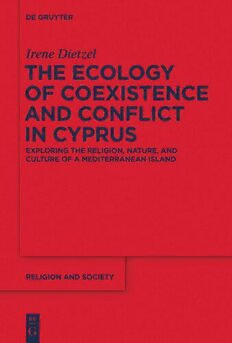
The Ecology of Coexistence and Conflict in Cyprus: Exploring the Religion, Nature, and Culture of a Mediterranean Island PDF
02014·1.293 MB·English
Most books are stored in the elastic cloud where traffic is expensive. For this reason, we have a limit on daily download.
Preview The Ecology of Coexistence and Conflict in Cyprus: Exploring the Religion, Nature, and Culture of a Mediterranean Island
Description:
What is the significance of sustainable resource management for the functioning of Mediterranean island societies? How do human-environment relations reflect in a multi-ethnic religious landscape? This book poses these questions in the context of the Ottoman, British, and modern history of Cyprus. It explores the socio-ecological dimension of the Cyprus conflict and considers the role of local environmental practices for historical coexistence and modern division. The book synthesizes theoretical approaches from the research on 'religion and ecology' with the anthropology of Cyprus, with the goal to develop and establish an ecological perspective on coexistence and conflict in the Mediterranean. Religion is seen as the place where local representations of nature and traditions of resource management are generated and maintained. The work takes a comparative look at the impact of Eastern Orthodox and Islamic institutions on the island's landscape, as well as the religious and economic practices of the rural peasant communities. The findings are then spelled out in the context of current discourses on religion, environmental ethics, and social justice.
See more
The list of books you might like
Most books are stored in the elastic cloud where traffic is expensive. For this reason, we have a limit on daily download.
